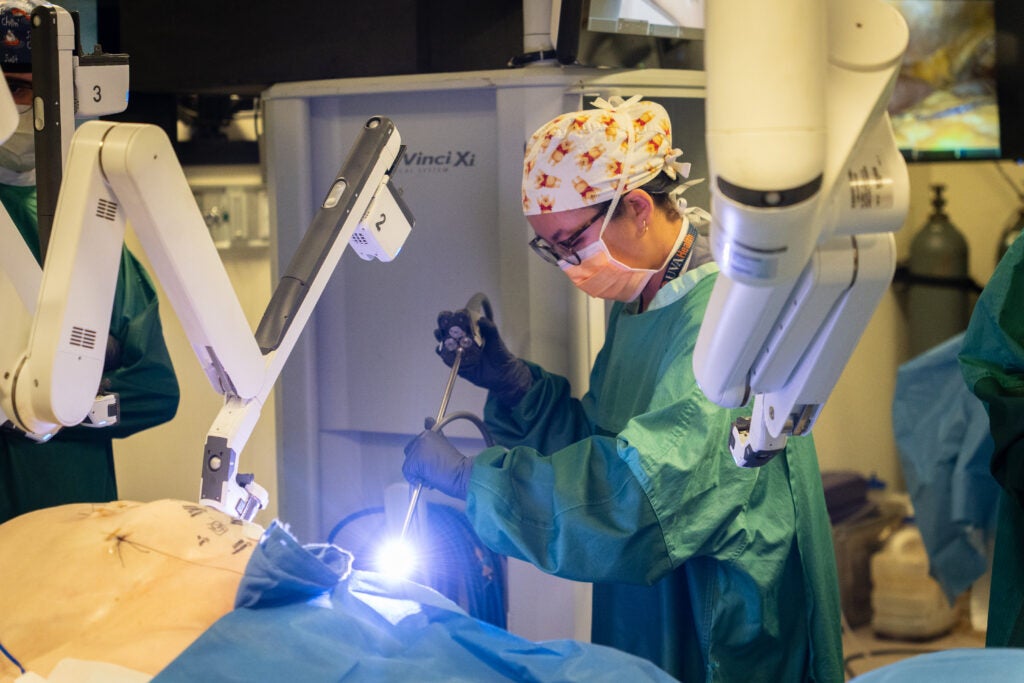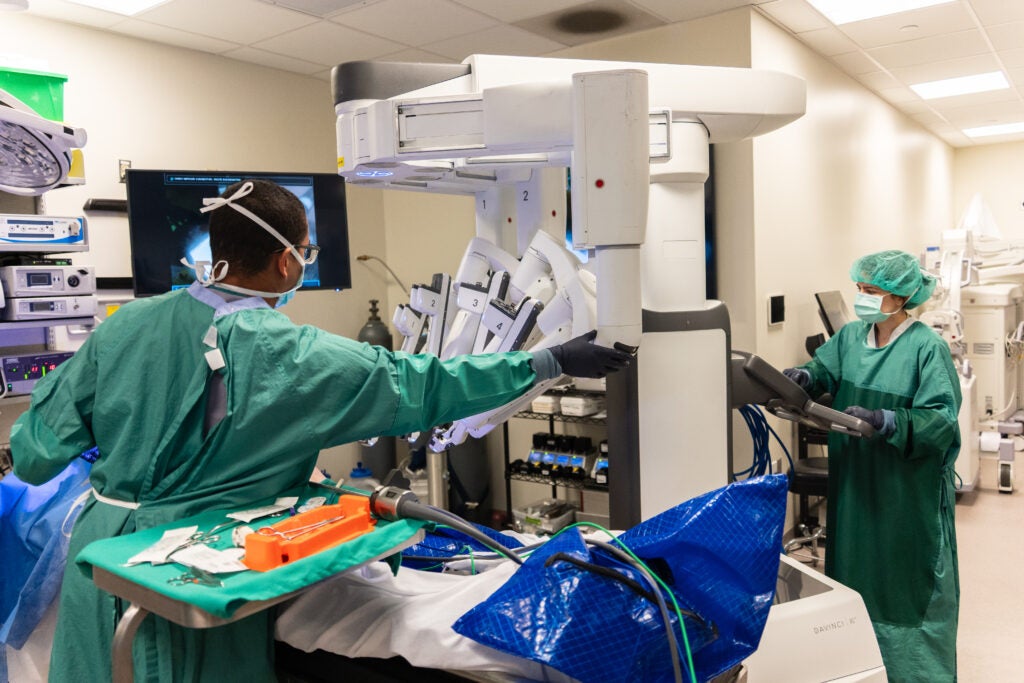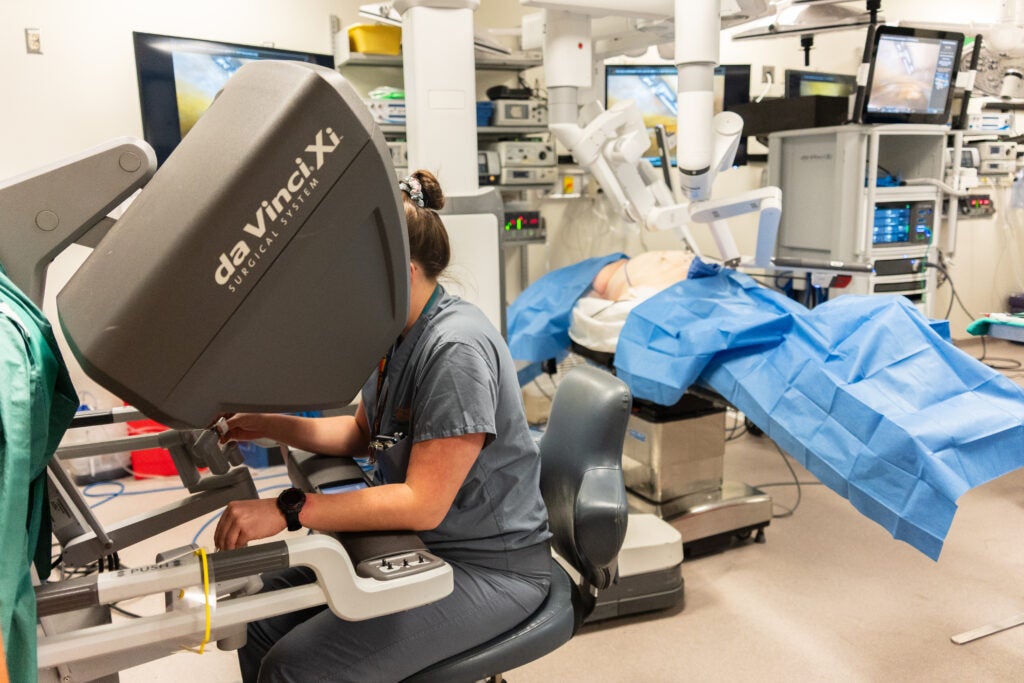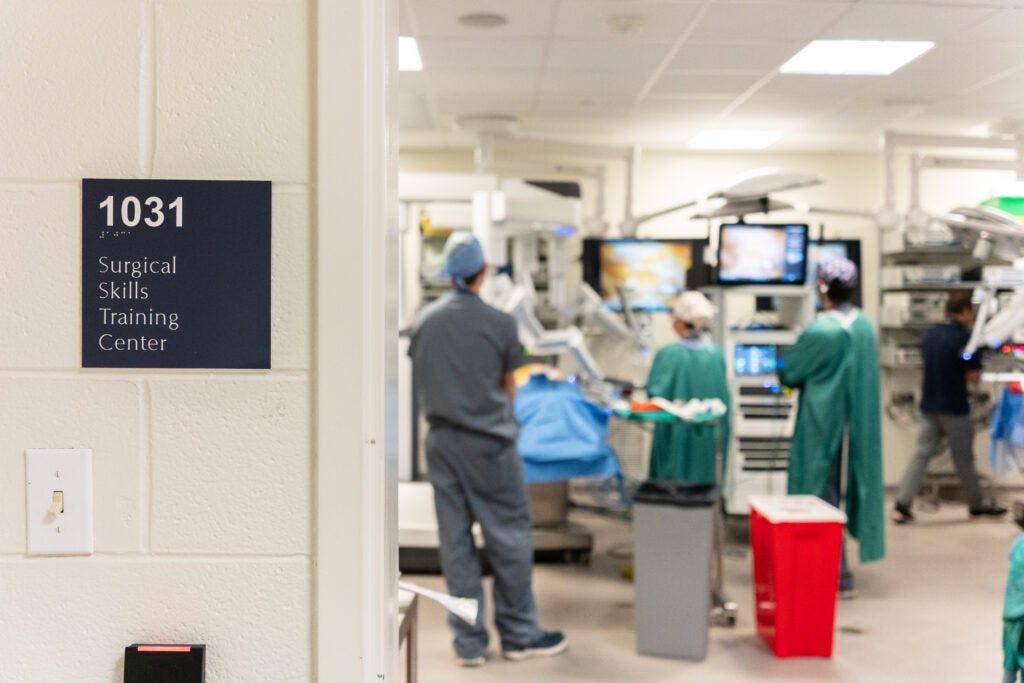Advanced GI MIS Fellowship

The Advanced Gastrointestinal and Minimally Invasive (GI/MIS) Surgery Fellowship at the University of Virginia offers a distinctive training model that combines advanced surgical experience, academic opportunity, and faculty-level responsibility. Established in 1999, the program has grown alongside the field of minimally invasive surgery and continues to prepare surgeons for both academic and private practice careers.
A Unique Training Experience
Our fellowship has always been an Instructorship. In other words, the fellow serves as an Instructor in the Department of Surgery, with full faculty admitting privileges. From the very beginning, this made our program unique in philosophy. We believe that instructors learn much more as faculty members than as fellows, since the learning curve of being the person in charge of a patient or an operation is best gained during this year of training. The close support and availability of experienced faculty have allowed this model to succeed safely for all our instructors.
In addition, instructors benefit from the opportunity to perform difficult and advanced cases alongside faculty—beginning in week one. As the year progresses, they become increasingly adept at these operations and begin performing their own cases as well. Because we are a teaching institution, instructors also guide residents through procedures appropriate to their level of training. One never learns an operation as thoroughly as when teaching someone else to perform it.
This, then, is the unique aspect of our curriculum at UVA: two learning curves are achieved—the technical mastery of complex operations and the experience of serving as the attending surgeon in charge of a practice. By the end of the year, our instructors are confident stepping into independent positions and have consistently excelled in both private practice and academic surgery.
Another important aspect of the fellowship is the opportunity to perform both robotic and laparoscopic cases. Because faculty members vary in their approaches to MIS procedures, instructors gain valuable experience with both techniques.
Surgical Case Mix and Call
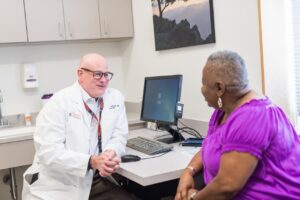
Program Director, Peter Hallowell, MD, speaking with a patient.
Our case mix is typically heavy on bariatric cases, with a large number of abdominal wall, foregut, and other emergency general surgery cases included. Instructors who wish to gain additional experience in another area, such as HPB, have in the past spent time on those services. Like the rest of our faculty, instructors also take call for emergency general surgery, incorporating that experience into their overall training.
From day one, instructors are treated as colleagues and fellow faculty members. They are responsible only for their own cases—not those of other attendings—and weekend cross coverage is shared equally.
Academic Opportunities
Academic opportunities are readily available to the instructor. We have access to several large databases, including NSQIP and MBSQIP databases for outcomes research. Our faculty members are highly active academically, with the group producing multiple studies each year.
The University of Virginia Surgery training program is a high-quality program that matches top applicants from across the country. Our residents consistently secure excellent fellowship positions at top-tier programs. This is important because we have a dependable group of outstanding residents who provide the bulk of patient care—and do so extraordinarily well. The Orange Surgery service, on which the instructor works, includes one PGY5, one PGY3, and one or two PGY1 residents, along with medical students. We have three NPs who perform most of the preoperative and many of the postoperative bariatric surgery visits. In addition, two nurse care coordinators field patient calls and help manage care during clinic and on other days. There are now six faculty members on the service, including the instructor.
Life in Charlottesville
Charlottesville is a wonderful place to live. Few locations in the country have a major medical center within a city of less than 100,000 people. As a result, we enjoy minimal traffic and avoid many big-city challenges, while having easy access to outdoor venues and activities. At the same time, Charlottesville is a sophisticated town for its size, with a vibrant university community that offers an excellent array of restaurants, shops, vineyards, breweries, entertainment, music, sporting events, and other activities.

